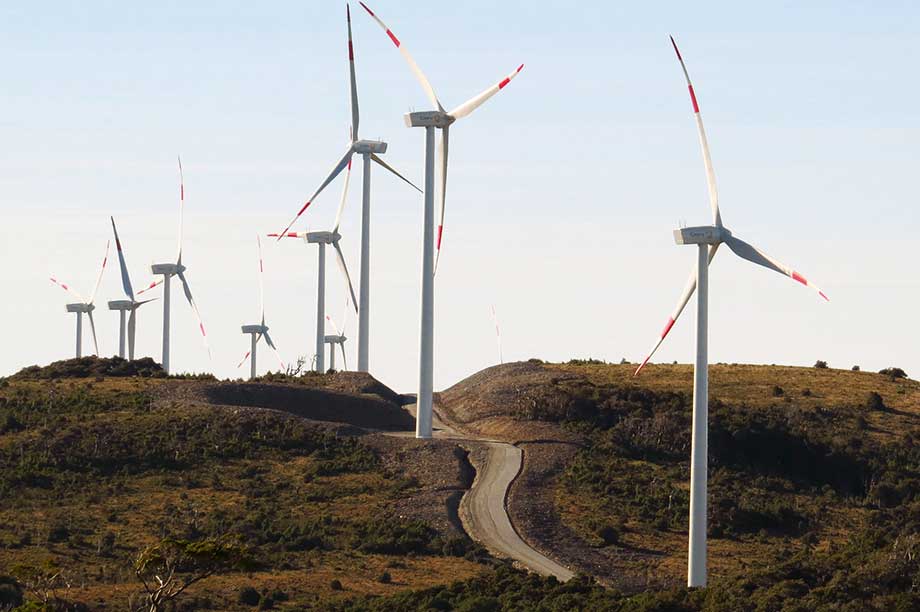Media reports suggested Siemens group CEO Joe Kaeser was in talks with Gamesa's executives and Spanish utility Iberdrola, which has a controlling 19.7% share in the manufacturer.
Siemens remained tight-lipped and in a note to Spain's financial regulator, the National Securities Market Commission, Gamesa made light of the situation, issuing the following statement: "In relation to the news and rumours about a possible corporate transaction between Gamesa Corporation Technology and Siemens AG, we hereby inform you that, in the ordinary course of its activity, the company regularly analyses the various strategic opportunities presented for the group.
"At the date of this communication it has not taken any decision and no agreement has materialised," the statement concluded.
Gamesa's shares leapt from €14.40/share at close on 28 January to a high of €17.66/share following the release of the note as rumours of a potential merger or takeover circulated, confirming the confidence investors had in the seriousness of the negotiations. Siemens shares also saw a small rise on the day of the note.
At the time of going to press, Gamesa and Siemens were still unable to comment on the nature of the deal and the stage of the negotiations.
Previous form
This is not the first time that Siemens has been active in the mergers and acquisitions arena. In 2014, it was reported that Siemens, in partnership with Japanese firm Mitsubishi Heavy Industries, made a late bid to acquire Alstom's power business and rival GE's offer.
It ultimately missed out, with GE completing the €9.7 billion takeover in October 2015, forcing the German firm to turn its attentions elsewhere.
Should a deal between Gamesa and Siemens materialise, it would add to the number of recent high-profile mergers and acquisitions in the wind industry, which include the GE-Alstom takeover, and the ongoing merger of Nordex and Acciona, announced in October.
It is understood a possible takeover of an OEM had been the topic of conversation on the Siemens board for some months. A deal with Gamesa would give Siemens an important business opportunity to tap into emerging markets and a low-cost supply chain, according to FTI Consulting analysts.
This comes on the back of falling oil and gas prices, as well as challenging market conditions in the wind sector, including price pressures, consolidation, a move towards tender-based support mechanisms and competition from Chinese OEMs.
"Siemens could be looking to further cement its place in the renewables sector," said Aris Karcanias, managing director for economic and financial consulting at FTI.
Siemens' position in the various rankings of largest wind turbine manufacturer in 2014 hovered around second, with Make Consulting rating it first ahead of Vestas, and others placing it fourth. Gamesa tended to come in at seventh or eighth. Should a merger go ahead, the combined company could have a 14-15% share of the market, surpassing Vestas as the leading OEM, said FTI, which placed Siemens second in 2014 with 9.5% market share, after Vestas with an 11.4% share.
Technology
The technology between Gamesa and Siemens is not a perfect match, noted Karcanias, nor would it be a "natural consolidation" of turbine offerings. The possible takeover is more of a business than a technological opportunity, said Feng Zhao, senior director at FTI.
"It opens up a number of the important, emerging and established markets (for Siemens)," Karcanias said. "Gamesa is strong in Mexico, Brazil, India and China and has a strong low-wind offering."
The Spanish manufacturer also has a strong and flexible supply chain, allowing it to offer a lower cost of energy and a stronger service proposition.
Gamesa's link with Iberdrola, one of the largest developers in the wind market globally, sees the companies cooperate on a number of projects together. "I would imagine Siemens would want to continue the relationship with Iberdrola," Karcanias said, adding that should the deal take place, Iberdrola would likely want to maintain its link with an established OEM.
Growth markets
Gamesa was the second largest foreign OEM in China in 2015 behind Vestas, and is the largest wind turbine supplier in India at present. Siemens' involvement in China, in contrast, is limited. It has a licence agreement with local manufacturer Shanghai Electric, but that unlikely to help it gain market traction.
Considering China and India are expected to account for more than 45% of all global wind-power installation in the next five to ten years, the potential deal not only creates the best market entry for Siemens in the world's number-one and number-five markets, but provides a market-share guarantee for the future as well, Zhao said.
As for the offshore sector, where Siemens is perhaps strongest, Gamesa has already partnered with Areva in its Adwen joint venture, offering 5MW and 8MW turbines. As this is being placed under Gamesa's brand, it could be something that could also be taken on by Siemens, which offers up to 7MW turbines for offshore projects.
"It is unclear where (Adwen) would reside," said Karcanias. Siemens, as the leading offshore wind OEM, would naturally seek to benefit from further consolidating its position in this growing sector.

.png)


.png)










